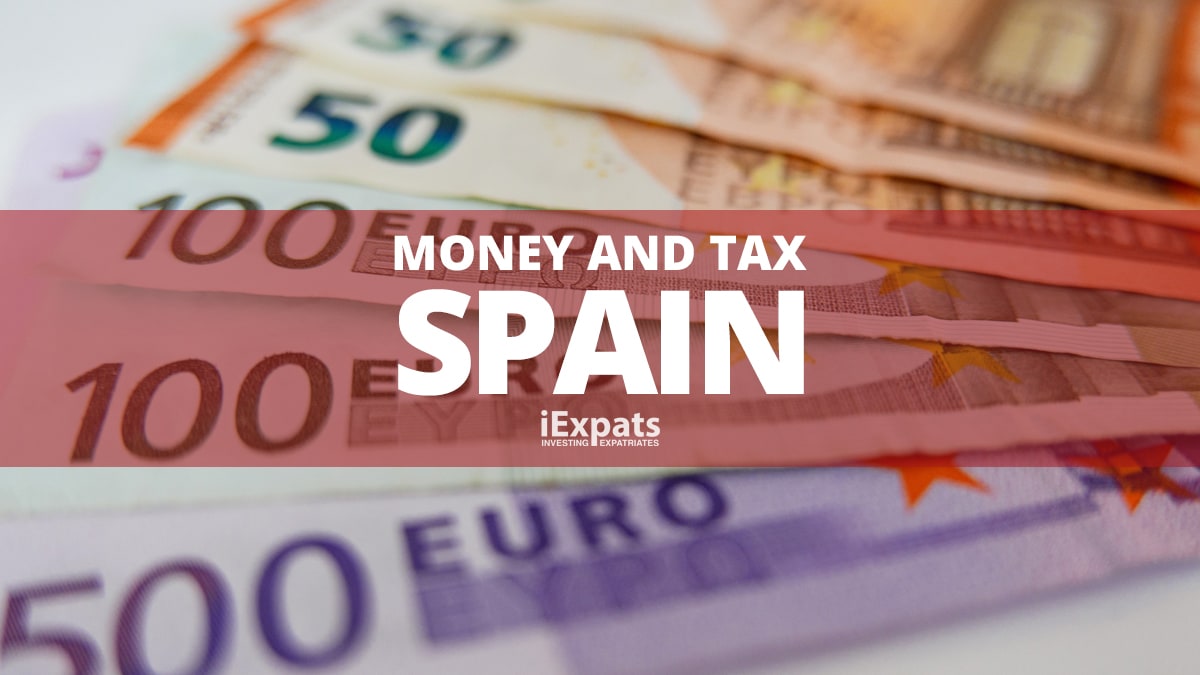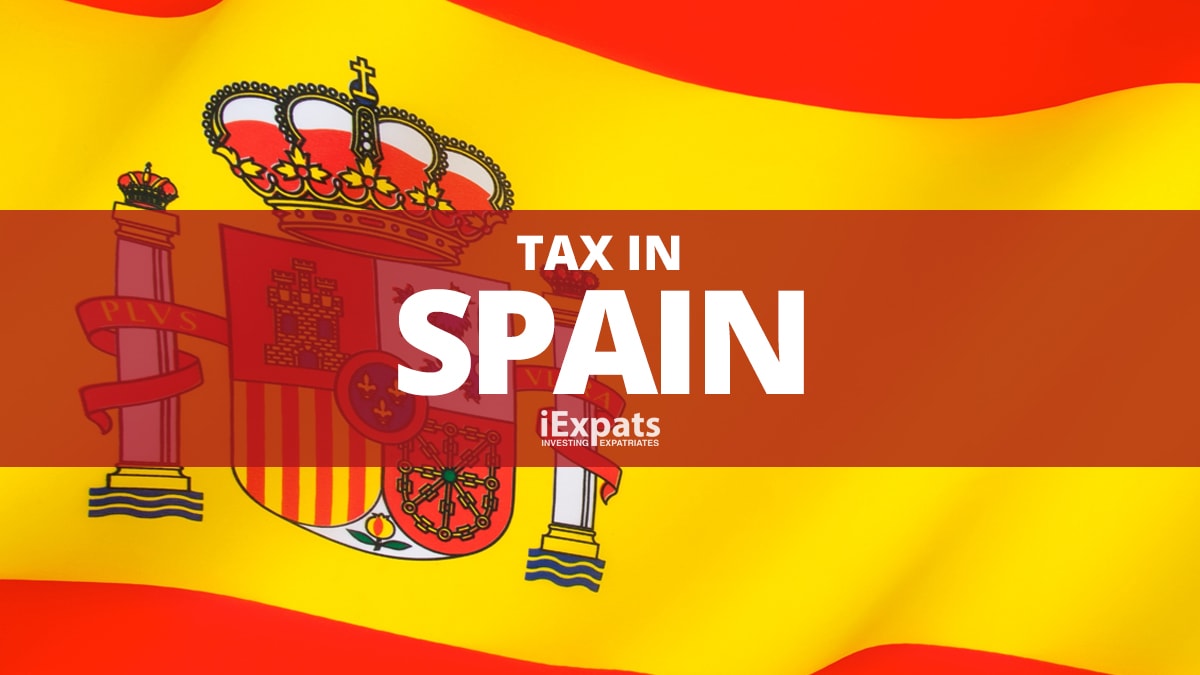Warmer weather and cheaper cost of living lures thousands of British expats to the sun-kissed beaches, island escapes and cool mountains of Spain.
Spain is the favourite European destination for British expats to live and work.
Around 1.3 million Brits live in another European country, while 900,000 are long-term expats according to EU and Office for National Statistics data.
Spain is home to 309,000 Brits, with 195,000 aged 50 or over – that’s roughly one in three Brits living in Europe and double the number in Ireland, the next most popular country, which hosts 280,000 British expats.
For expats looking for the real Spain, avoid the British enclaves on the coast which are just like home with warmer sunshine and fish and chips.
Spain has 8,116 municipalities – towns and cities – but 250,000 expats live in just 60.
Statistics show Andalusia is the favoured region and spreads across the south of Spain, from the border with neighbour Portugal to the Mediterranean coast, taking in the major towns and cities of Cadiz, Seville, Malaga, Cordoba and Granada.
The jet set playground of Marbella and sun-and-sangria resort of Torremolinos are also on the south coast of Andalusia.
The province surrounds the British Overseas territory of Gibraltar.
Other popular regions are Murcia and Valencia, both on the Mediterranean coast above Andalusia. Alicante in Murcia is probably the place with the most British expats.
How to get Financial advice in Spain?
Forging a relationship with a first-class financial adviser is the best way to prosper in any country – and Spain is no different.
A good IFA offers options and opportunity, but you need to know how to make your money work for you in Spain.
Expats will queue up with stories of scammers and fraudsters masquerading as qualified and regulated advisers.
These crooks linger in the corners of expat bars and clubs and dangle the bait of high returns before unwary investors who don’t realise they are the prey.
The takeaway is always check out an adviser before you hand over any cash – if they are genuine they expect your due diligence, if they are not, then you are saving yourself from a financial disaster.
How Financial Firms in Spain Are Regulated?

Just like the UK, Spain has a set of regulators who supervise all aspects of financial advice.
In the UK, the Financial Conduct Authority does the job. In Spain, the task is managed by the Comision Nacional del Mercado de Valores, or CNMV for short.
In English, the watchdog is called the National Securities Market Commission.
The CNMV keeps a list of qualified and authorised financial advisers so consumers can check out the profiles of the advisers they are dealing with.
Only advisers authorised by the CNMV or Bank of Spain – the country’s central bank – can give advice on investments.
If they are not on the register, they are not authorised advisers.
An advice’s entry on the register should also disclose any fees and commissions charged to clients.
The CNMV also publishes regular scam alerts highlighting companies and advisers operating without authorisation. Many are scammers and fraudsters listed because they have solicited money from clients under false pretences.
The regulator also runs a web site for investors that offers news, tips and information.
Overseas financial advisers in Spain
European Economic Area financial advisers can ‘passport’ their authorisation in one country to another EU member state.
This allows them to carry on their business activities in more than one country, but they remain under the supervision of their home regulator.
In most cases, financial advisers for British expats in Spain will have passported their authorisation from the UK and their credentials can be checked on the FCA web site. Similar arrangements apply to advisers from other EEA countries.
Do you think you are an expat?
An expat is more than someone who simply moves between countries.
Expats are people from one country who become tax resident in another.
Deciding if you are an expat is considering a host of factors that make up your tax status, like how long you spend in a country and where your main home is located.
The first step in expat financial planning is establishing where you are tax resident and domicile, because everything else stems from that.
In general, someone is tax resident in Spain if:
- They spend more than 183 days in any calendar year in the country regardless of residence status and registration unless expats can show they were tax resident elsewhere for 183 days or more
- Tax residence is about an expat’s ‘centre of economic interest’. If Spain is where someone has the most income, then Spain is likely to claim your tax residence
- The ‘centre of vital interests’ test shows favours Spain. The centre of vital interests refers to where a spouse and dependent children live and where you base your life in general
If Spain and the UK claim an expat’s tax residence, then the double taxation agreement between the two countries offers a process to decide which country takes precedence.
The treaty makes sure no one pays tax on the same income or gains in two countries. Typically, expats tax resident in Spain will obtain a certificate from HM Revenue & Customs in the UK showing how much tax has been paid on money earned in Britain.
The certificate is passed to the Spanish tax authority, which will credit the amount paid against any tax owed in Spain.
The process works in reverse for UK taxpayers in Spain.
Money and tax for expats in Spain

So, if you are sure you are a Spanish tax resident, the tax rules are like those in the UK.
Expats become liable to pay taxes on their worldwide income and gains in Spain, while their estate when they die is subject to Spanish wealth tax and inheritance rules.
Expats who become tax resident must also file a declaration of offshore assets Form 720 Modelo if they add up to more than €50,000.
Expats must file a tax return if:
- Earnings are more than €22,000 in a tax year
- They are self-employed
- Are paid rents of more than €1,000 a year
- Have income from capital gains or savings of more than €1,600 a year
- They are a first year tax resident in Spain
If you consider yourself an expat but are not tax resident in Spain, you will only pay tax in Spain on the part of your income and gains earned there.
Don’t forget the tax year in Spain runs at a different time than the UK – instead of April 6 to the following April 5, the tax year in Spain is the same as the calendar year with tax filing due by the following June 30.
For example, the for 2020, the Spanish tax year is January 1, 2020, until December 31, 2020 with tax filings due on June 30, 2021.
Spain’s income tax rates in 2019 are:
- Up to €12,450: 19%
- €12,451–€20,200: 24%
- €20,201–€35,200: 30%
- €35,201–€60,000: 37%
- More than €60,001: 45%
Expats should file a Form Modelo 30 to tell the Spanish tax authority – the Agencia Tributaria – about paying tax for the first time.
You will need a national ID card for foreigners to complete the filing.
Get the card from a police station or the Oficina de Extrajeros within 30 days of arriving in Spain.
Property tax in Spain
Home owners living in a property they own on January 1 each year must pay a local tax called Impuesto sobre Bienes Inmuebles (IBI).
The IBI is calculated as the home’s rental value multiplied by the IBI tax rate set by the local authority, so varies across the country.
When a home is sold, the owner pays Impuesto Transmisiones Patrimoniales(ITP), which is like stamp duty in the UK but in reverse.
Capital gains tax is also charged against any profit in the property value.
The 2019 CGT rates are:
- €19% against the first 6,000 in value
- €21% against the value between 6,001 and 50,000
- €23% for 50,001 and above
Taxing your wealth
Spanish wealth tax is charged on the value of someone’s assets.
Anyone with wealth up to and including €700,000 is exempt, while homeowners can add another exemption of €300,000.
Those with a net worth of more than €700,000 are taxed at a rates between 0.2% and 2.5%.
Find out more about taxes in Spain
Planning for Spanish succession laws

Estate planning is an often neglected when expats consider their financial plan.
No one wants to confront their mortality and discuss what happens to their wealth on their death, but having a plan for the inevitable is necessary.
Estate planning in Spain means negotiating complex succession laws that are very different from those in the UK.
If expats have a will in Spain, they must indicate unambiguously if they want to follow Spanish law or the succession rules of their home country.
If an expat does not have a will, the estate is distributed according to Spanish law.
Spanish law defines four sets of inheritors –
- Children and grandchildren under 21 years old
- Children and grandchildren over 21, parents, grandparents and spouse
- Brothers, sisters, uncles, aunts, cousins, parents-in-law, daughter(s)/son-in-law(s)
- Anyone else
Why your financial plan should include a will in Spain
Writing a will in Spain as an expat comes with many benefits.
Not only are your wishes clear, but they are quicker to carry out.
An expert will writer can also help you avoid inheritance tax by helping with some tax hacks.
One of the best-known is sharing a property between several people who each have their own inheritance tax threshold, rather than leaving the property to just one person who has a single cap on tax relief.
Married couples should write their own wills, where one in Spanish and another in another language chosen by the expat are notarised and filed with the Registro Central de Ultimas Voluntades, a government agency in Madrid.
However, if the will needs editing or rewriting, rather than adding a codicil, the process is started again.
How inheritance tax works in Spain
There’s no one rule fits all when working out inheritance tax on property in Spain. The amount paid depends on the property location.
Tax is then calculated according to national law and any local rules for the autonomous region where the property is located.
After a family makes a declaration that inheritance taxa is due, 5% of the value of the estate is paid every three months up to a maximum 20%.
Expats with assets in two or more countries
If you are a tax resident in Spain but still have property, possessions or money in the UK or another country, you should consider making a will in each country where you have such assets.
Will writers are unlikely to be cross-border tax experts, but your financial adviser should have links to legal and tax professionals who can help.
Expat pensions

If you are a British expat in Spain, an IFA can help you with the Qualifying Recognised Overseas Pension Scheme (QROPS).
QROPS are offshore pensions designed for expats supervised by HM Revenue & Customs in the UK.
The rules allow an expat living in Spain to transfer their UK pension savings or a fund from another QROPS to a QROPS within the European Economic Area (EEA).
Countries offering QROPS in the EEA are Austria, Belgium, Bulgaria, Denmark, Finland, Germany, Gibraltar, Ireland, Latvia, Liechtenstein, Luxembourg, Malta, Netherlands, Norway or Sweden.
Between them, these countries offer more than 200 QROPS.
QROPS offer expats tax-effective pension savings with more flexible investments than a UK pension.
Read the latest QROPS list data published by HMRC every two weeks
For expats who are still UK tax resident, a self-invested personal pension (SIPP) is also worth considering.
Why expats need a financial plan
A recent survey in the UK by independent think tank the International Longevity Centre revealed regular savers could be £47,000 better off on retirement if they follow advice from a financial adviser rather than manage their own wealth.
The surprising conclusion was the gain from taking advice about savings and investments increases wealth by an average 24% for the affluent, compared with 35% for the not so well-off.
On pension wealth, the uplift is 11% for the affluent compared with 24% for the not so well-off.
The data came from following the fortunes of savers and investors for a decade.
The data shows that investors do not have to be wealthy to benefit from a financial plan and even those with just a small amount of money to set aside can benefit from professional advice.
Everyone wants your money
The number of financial products and people willing to offer advice about what to do with your money is bewildering.
Sometimes, it can be difficult to work out how to best manage your resources when bombardment from so many companies competing for your cash.
An independent financial adviser will have the skills and resources to draft a tailored financial strategy to match your personal circumstances.
The strategy will take into account your financial goals – considering when you want to retire, how much money you would like after you stop working and savings for funding key events like education, marriage and buying a home for you children.
Many people think about a financial plan is just for retirement, but a good strategy should look at so much more. Learn more in this article about how to retire in spain.
Tough financial questions an IFA can answer
Financial planning is about allocating your money to maximise your wealth in a tax -efficient way. With so many calls on your cash, you must look at what’s important in your life and how to fund them.
- Should you choose to save with a bank or an investment bond?
- How much do you need save for a pension, do you need a QROPS or SIPP and how should the money be invested?
- How much can you spend on buying your own home?
- How do cross-border taxes impact your finances and estate planning?
- Should you invest offshore?
- How do you pay the bills if you are too ill to work?
- Do you need to fund your children’s education?
- Does your family need private health care?
- How do your loved ones cope financially when you die?
An IFA has instant access to a wealth of knowledge about interest rates, returns on investments or international tax rules.
The question is not can you afford to talk to an IFA an expat, but can you afford not to?
What does a financial adviser do?
Your IFA is a middleman sourcing products and services offered by financial providers, like pensions, investments, bonds, and savings plans that match your financial objectives.
Life’s not always plain sailing – major events that effect your finances will happen, including marriage, having children, changing jobs, accidents or illness.
Each event is a financial challenge or opportunity. Your IFA can cast an unemotional eye over what’s happening and can discuss what you can do for the best outcome.
Good IFAs give you options, pointing out the pros and cons of each choice, leaving you to make the final decision.
Make sure you get the right service
Financial advisers offer different levels of advice to clients depending on their qualifications and who they work for.
Independent financial advisers
IFA’s ive whole-of-the-market advice because they can discuss any provider’s products.
IFAs will compose a bespoke financial strategy to your needs based on a fact find, which is a detailed questionnaire about your current and future financial goals. The fact find should cover your attitude to risk so the IFA can determine the most appropriate savings and investments for you.
The fact find is a benchmark of your financial status and provides the information the IFA needs to recommend products and services.
Multi-tied advisers
Work in a space between IFAs and tied advisers. They are not true independents because they are part of networks that limit the products and services they can recommend to a small number of providers.
A multi-tied adviser will conduct a fact find, but can’t talk about products offered by providers outside of their network.
Tied advisers
Typically work for a bank, financial advice firm or insurance company and can only recommend their employer’s products. The advice is narrow and not suitable for many expats.
The problem with a tied adviser is you can miss out on a much better product offered by a firm outside of the tied adviser’s scope because they simply cannot include the details in their recommendations.
How much does financial advice cost?
How much does financial advice cost is a question that should really be how much is financial advice worth to you?
If taking advice is worth that £47,000 margin evidenced by the International Longevity Centre, then investing some money in your financial future seems worthwhile after a cost-benefit analysis.
But what you pay depends on you.
In Spain, financial advice comes as a combination of fees expats directly payable to the adviser and commission paid by the provider.
Checking out an adviser on the Comision Nacional del Mercado de Valores, or CNMV web site should give some indication of the fees and charges a specific advice firm or IFA expects.
Of course, these are often open to negotiation, so don’t be scared to challenge IFA fees.
Watch out for double charging for the same advice – either pay a fee with the commission waived or disclosed, or accept you pay commission as part of the price of any recommended products or services.
Questions to ask your financial adviser
You need to trust your IFA and knowing that they have other clients like you helps.
Also consider continuity. What happens if your adviser moves on or retires? Are you dealing with a firm that you can rely on or a specific adviser?
Check the firms and advisers out online, but take any comments with a pinch of salt.
Testimonials will be favourable, otherwise there’s not much point in publishing them, while some people always complain. The silent majority lies in-between and rarely bothers to make a comment.
Make some checks to find out who you are dealing with. Here are some tips of what to look for:
- Qualifications and experience working with expats in Spain
- Independent status for recommending products and services
- Status with Comision Nacional del Mercado de Valores, or CNMV
- Fee and commission structure
- Arrangements for continuing advice should you move or leave Spain
- Professional support for handling tax and estate planning between your home country and Spain
Tax tips for expats

Although expats should take personal tax advice in Spain and the before leaving the UK, some general rules of thumb apply:.
- Don’t wait for the tax authorities to catch up with you –start tax planning in the UK and Spain months before you move
- Tax normally follows residence, so determine where you will be tax resident so you follow the correct rules
- Don’t navigate foreign tax rules on your own – take professional advice
- It’s your money but make sure you follow currency exchange rules and pay exit taxes when you move cash across borders
Not all moves abroad end as a success.
Many expats come home sooner than expected because of family issues (54%), poor health (42%) or culture shock (28%), according to data from the Legatum Institute Foundation.
A change of mind can wreck financial plans, so expats find out how tax will impact your finances if coming home early.
Savings and investments
Once you understand your tax residence and financial status in Spain, you can start saving and investing confidently.
Savings are a short-term, easily accessible place to keep your money.
There’s no rule stating how much you should save, but most financial advisers suggest a fund large enough to cover your bills for at least three months.
Investments are longer-term savings that earn better rates because they are locked away for more time.
Investments would include savings tied up for five years or more, pensions and bonds.
Benchmarking your finances
You can’t plan where to go unless you know where you are.
It’s an obvious statement, but you need to establish your wealth and objectives before you can make a financial plan.
The process is called benchmarking and is worked out by your financial adviser with a fact find.
A fact find looks at your financial status by itemising income, spending, savings and investments.
Your fact find will also include other factors, such as private health and life insurance.
Information about your spouse and children, if you have them, will be included.
The idea is to identify where your finances fall short and improvements that might be made.
Included is a net worth statement listing your assets, like cash, pensions and your home, and what you owe, like credit card debts, loans and mortgages;
Taking you liabilities away from your assets gives your net worth.
Your net worth determines the products and services your financial adviser can offer.
Expats earning more than £100,000 (US$130,000) a year and with valuable assets are termed ‘high net worth individuals’ (HNWI) by financial companies.
Advisers will often have special products for these sophisticated investors, who are treated as if they have more financial knowledge than lower earners.
The more disposable cash an expat has, the higher up the wealth scale they rise at the top are Ultra-High Net Worth Individuals (UHNWI), who can show they have £23 million or more ($30 million) of liquid financial assets.
Summary
Finally, tax and succession laws in Spain are different from those in the UK and can easily trip the unwary and leave them with hefty tax penalties.
There is no split-year tax concession as in the UK and as UK and Spanish financial years run at different times, comparing income for the tax man across both countries can be difficult.
A good IFA will have a back office that includes cross-border tax and estate planning experts, so should provide a complete, bespoke financial package covering all the issues discussed above.

Very helpful, thank you.